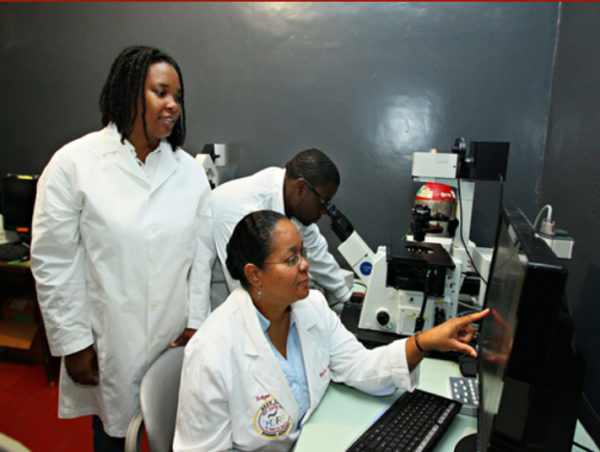University of Alabama at Birmingham and Tuskegee University Partner to Diversify Biomedical Research with $13.7 Million Grant
The University of Alabama at Birmingham and Tuskegee University are the joint recipients of a $13.7 million grant from the National Institute of Health (NIH) Common Fund to help diversify the workforce of biomedical research.
With the multimillion dollar award, the Southern institutions will be tasked with recruiting, hiring and training twelve researchers in disciplines disproportionately underrepresented by people of color including cancer, obesity, diabetes, cardiovascular disease and neuroscience.
Together the UAB and Tuskegee form a partnership called the Faculty Institutional Recruitment for Sustainable Transformation (FIRST). The partnership works to develop faculty with a commitment to sustainable “inclusive excellence,” and addressing health disparities. According to the NIH, “the program also seeks to have a positive impact on faculty development, retention, progression, and eventual promotion, as well as develop inclusive environments.”
Individuals chosen for the program will become designated Benjamin-Carver Scientists “in honor of two barrier-breaking investigator leaders — 18th U.S. Surgeon General and Heersink School of Medicine alumna Regina Benjamin, M.D., and research scientist, Tuskegee faculty member and humanitarian George Washington Carver.
“We are proud to continue our partnership with Tuskegee University in this endeavor to build a community of scientists committed to inclusive excellence by recruiting early-career faculty committed to promoting diversity and inclusion while addressing health disparities,” said Dr. Selwyn Vickers, UAB Marnix E. Heersink School of Medicine dean and senior vice president for medicine.
FIRST cohorts of varying focuses also exist at Cornell University, Icahn School of Medicine at Mount Sinai, Drexel University, Florida State University and San Diego State University.
“This NIH FIRST grant is an excellent opportunity to build on our years of work together. We are excited to be a part of this important initiative to nurture a culture of inclusive excellence among the faculty at both our institutions, while helping ensure the success of a new generation of researchers,” said Tuskegee President Charlotte P. Morris

